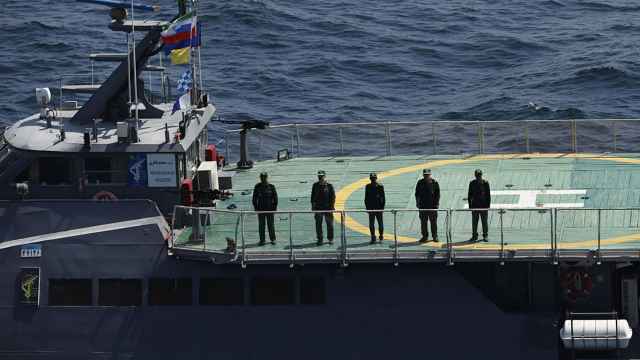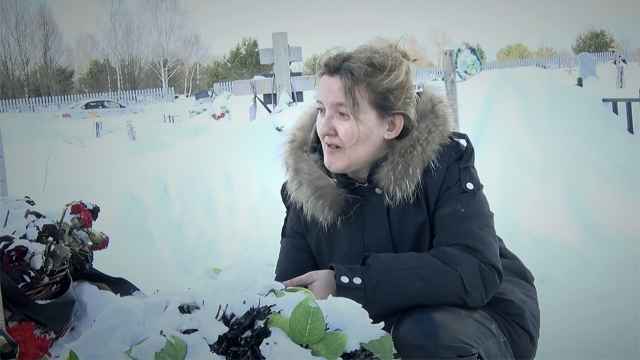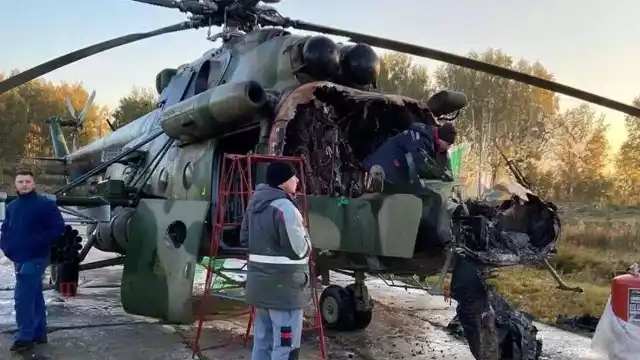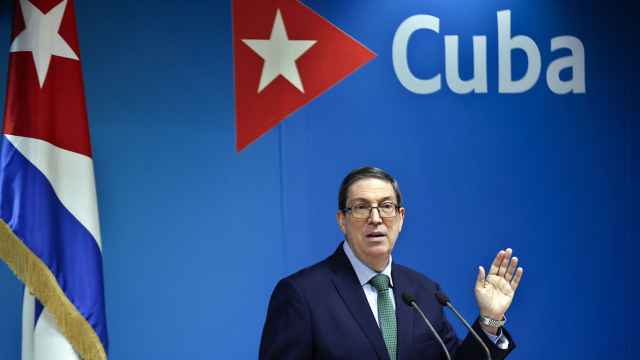Syria's government Friday proposed a cease-fire in the embattled city of Aleppo and a prisoner exchange with the opposition, a move that appeared aimed at presenting President Bashar Assad as a responsible partner less than a week before an international peace conference.
Assad's opponents were skeptical about the offer, which was floated by Syrian Foreign Minister Walid al-Moallem during a visit to Moscow. A member of the main Western-backed opposition dismissed the government overture as "last minute maneuvering" to please Damascus' Russian allies, while a rebel commander in Aleppo described such a truce in the civil war as nearly impossible.
The opposition Syrian National Coalition has yet to decide whether it will attend the peace talks scheduled to open Wednesday in the Swiss city of Montreux. Members of the coalition gathered Friday in Istanbul to vote on the group's participation, but the start of the meeting was delayed for at least 10 hours after dozens of representatives refused to show up.
The coalition is under immense pressure from its Western and Arab sponsors to go to Geneva. Many members, however, are hesitant to sign onto a conference that has little chance of success and will burn the last shred of credibility the group has with rebels on the ground, who reject the talks.
Haitham al-Maleh, a senior member of the coalition, said it was inclined to vote in favor of participating in the talks, but that the Assad regime "has to leave."
"We are not obliged to stay there forever. If we find any deviation in the negotiations, we will withdraw. … We will find a way to say 'goodbye' since it is an issue where there can be no bargaining," he told The Associated Press in Istanbul.
The meeting in Moscow between al-Moallem and his Russian counterpart, Foreign Minister Sergei Lavrov, was part of a final diplomatic push before the peace conference that has been dubbed Geneva 2. Al-Moallem did not divulge details of the cease-fire proposal, which would contain "measures to enforce security" in Aleppo, Syria's largest city.
"As a result of our confidence in the Russian position and its role in stopping the Syrian bloodshed, today I submitted to Minister Lavrov a plan for security arrangements that have to do with the city of Aleppo," Syria's top diplomat said. "I asked him to make necessary arrangements to guarantee its implementation and specify the zero hour for military operations to cease."
If Lavrov's efforts were successful, al-Moallem said, the Aleppo cease-fire plan could be used as a model for other parts of the country, where the conflict between Assad's forces and the opposition has claimed more than 130,000 lives since March 2011.
Al-Moallem also said his government has agreed "in principle" to release prisoners from jails in exchange for people kidnapped by armed groups, but he said there needs to be an exchange of lists and a mechanism for implementation.
The opposition has accused the government of reneging on promises before and declaring cease-fires in order to buy time. There are also questions as to whether such a truce is even remotely possible in a city where an array of armed rebel groups with no unified command is locked in a bloody stalemate with government troops.
The commander of one moderate rebel brigade in the city who goes by the nom de guerre of Abu Thabet dismissed the government proposal.
"We have gotten used to these games by the regime and nobody takes it seriously," he said. He added that there were so many players in Aleppo, especially as rebels are bogged down in a fight against an al-Qaida-linked faction in the city and across the opposition-held north, that it would be nearly impossible to have anything like a truce.
The opposition has long demanded a cease-fire and a prisoner exchange as conditions for the Geneva talks. But it was unclear whether al-Moallem's announcement would sway the opposition meeting in Istanbul, which is deeply skeptical of any government overtures.
Nizar al-Hrakey, a member of the Syrian National Coalition who is one of 44 who walked out of the group last week after failure to come up with a unified stance on Geneva, described al-Moallem's offer as an attempt at deception.
He said the coalition was being subjected to "enormous pressure by the international community with an undercurrent of threats, even, "to go to Geneva, and that the situation in Istanbul was "very foggy."
In Washington, State Department spokeswoman Jen Psaki said the U.S. was "exploring the possibility" of progress in areas that could improve the environment for negotiations, including on humanitarian access, prisoner releases and local cease-fires, including in Aleppo. She declined to get into specifics, saying discussions were ongoing with the Russians, the United Nations and the opposition.
With the opposition adamant that Assad's ouster be a condition for any deal, al-Moallem's overtures in Moscow appeared aimed to coax the group into attending the talks. U.S. Secretary of State John Kerry said in Washington that Assad cannot be part of a political solution in Syria, because his opponents would never stop fighting him.
In Geneva, meanwhile, the UN's top human rights official, Navi Pillay, said the repeated obstruction of convoys trying to resupply the Yarmouk Palestinian refugee camp in Damascus may amount to a war crime.
Pillay said in a statement that numerous attempts by the UN and other organizations in the past four months to deliver aid to the 18,000 people in the camp have been thwarted. She said badly needed food and medical aid is not reaching malnourished children, women and elderly people close to starvation because of "a quagmire between besieging Syrian government forces and affiliated militias surrounding the Yarmouk camp, as well as anti-government armed groups operating inside."
Heavy battles raged Friday between Syrian government forces and rebels near the border with Lebanon.
A barrage of 20 missiles and shells from Syria slammed into Lebanese border towns and villages, killing seven people, including at least three children who were playing outside, Lebanese security officials said on condition of anonymity because they were not authorized to brief the media.
The attack was the latest incident in what has been an increasing spillover of the civil war into Lebanon, where violence from rockets, car bombs and sectarian clashes has claimed dozens of lives in the past year.
Most of Friday's casualties were in the town of Arsal, where thousands of Syrians have fled to escape the violence in the past months. The state-run news agency said the attacks also wounded 15 people.
It was not immediately clear who fired the rockets, which struck several towns and villages in the northern Bekaa Valley, including Baalbek, Hermel and Arsal. A security official in the area said it was not known whether they were errant shells or deliberate firing.
A Message from The Moscow Times:
Dear readers,
We are facing unprecedented challenges. Russia's Prosecutor General's Office has designated The Moscow Times as an "undesirable" organization, criminalizing our work and putting our staff at risk of prosecution. This follows our earlier unjust labeling as a "foreign agent."
These actions are direct attempts to silence independent journalism in Russia. The authorities claim our work "discredits the decisions of the Russian leadership." We see things differently: we strive to provide accurate, unbiased reporting on Russia.
We, the journalists of The Moscow Times, refuse to be silenced. But to continue our work, we need your help.
Your support, no matter how small, makes a world of difference. If you can, please support us monthly starting from just $2. It's quick to set up, and every contribution makes a significant impact.
By supporting The Moscow Times, you're defending open, independent journalism in the face of repression. Thank you for standing with us.
Remind me later.





